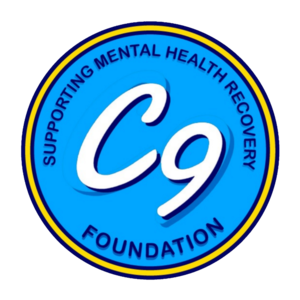Bipolar: Myths & Facts
Myth: Bipolar disorder cannot be diagnosed as easily as physical illness.
Fact: Bipolar disorder can be diagnosed similarly to physical illnesses. While there are no physical tests that can reveal the disorder, the diagnosis of bipolar illness is based on standard criteria. An accurate diagnosis of a bipolar illness is made by using the tools (or psychiatric laboratory tests) of a medical and psychiatric history, self-reported symptoms, observable behavior, input from friends and family, family medical history and specific psychiatric rating scales.
Myth: Children do not get bipolar disorder.
Fact: Bipolar disorder can occur in children as young as age six. It is more likely to affect children of parents who have bipolar disorder. Children tend to have very fast mood swings between depression and mania many times during the day whereas adults tend to experience intense moods for weeks or months at a time. Note—Bipolar disorder can best be diagnosed after examination of historical behaviour patterns. Parents should attempt to get independent verification and consider carefully any such diagnosis of a very young child.
Myth: It is impossible to help someone with bipolar disorder.
Fact: Bipolar disorder can be effectively treated and managed. More than 30% of bipolar patients can expect full and complete recovery while another 40% can expect a very marked reduction in their symptoms. Individuals can go into remission during various periods of their life. Successful management depends on many factors including education about the illness, good communication with professionals involved in your care, a good support system (family and friends) and adhering to your treatment plan.
Myth: Bipolar disorder is a figment of one's imagination.
Fact: Bipolar disorder is a treatable brain disorder that is real and can cause a lot of suffering, especially if it is not well managed. Individuals cannot just snap out of it! Recovery takes time and hard work.
Myth: People who have bipolar disorder cannot work.
Fact: Proper medical treatment and good support enables most people (more than 75%) with bipolar to work and be successful.
Myth: Bipolar disorder is caused by a personal weakness or character flaw.
Fact: Bipolar disorder is a medical condition just like diabetes or any other health condition. People with bipolar disorder cannot "just pull themselves together" and get better. Treatment is necessary.
Myth: If you have bipolar disorder, you are ill all the time.
Fact: Bipolar disorder is characterized by episodes of highs and lows. In most people, these episodes are separated by periods of stability. People may go for months, sometimes even years without an episode by managing the illness well.
Myth: Once bipolar disorder is under control, people can stop their medications.
Fact: Bipolar disorder is an illness that most often requires people to continue taking medications, even if they are symptom free. Medication can act in a preventative way, helping people to avoid relapses. You should always consult with your doctor before stopping any medications.
Myth: Alcoholism and drug abuse cause bipolar disorder.
Fact: People with bipolar disorder are more likely to experience problems with the use of alcohol or other drugs but the drugs do not cause the disorder. People with bipolar disorder may use alcohol or street drugs to make themselves feel better (self-medicate) or as an escape from their problems.

